Elevate your career with this globally recognized credential, showcasing your expertise in project management. A must-have for professionals.
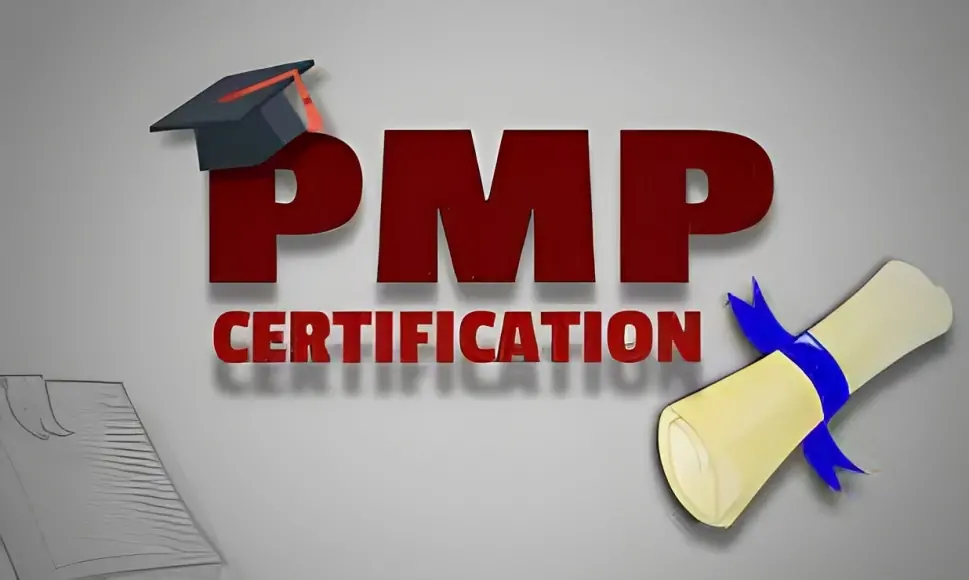
Introduction:
In today’s competitive business landscape, effective project management is crucial for the success of any organization. Companies are constantly seeking skilled professionals who can plan, execute, and oversee projects efficiently. This is where Project Management Professional (PMP) certification comes into play. If you’re looking to advance your career and become a sought-after project manager, obtaining a PMP certification is an excellent choice. In this comprehensive guide, we’ll explore what the PMP certification is, why it’s valuable, and how you can achieve it.
What is PMP Certification?
The Project Management Professional (PMP) certification is a globally recognized credential awarded by the Project Management Institute (PMI). It demonstrates your expertise and competence in project management, making you stand out in a competitive job market. PMP certification is widely regarded as the gold standard for project managers.
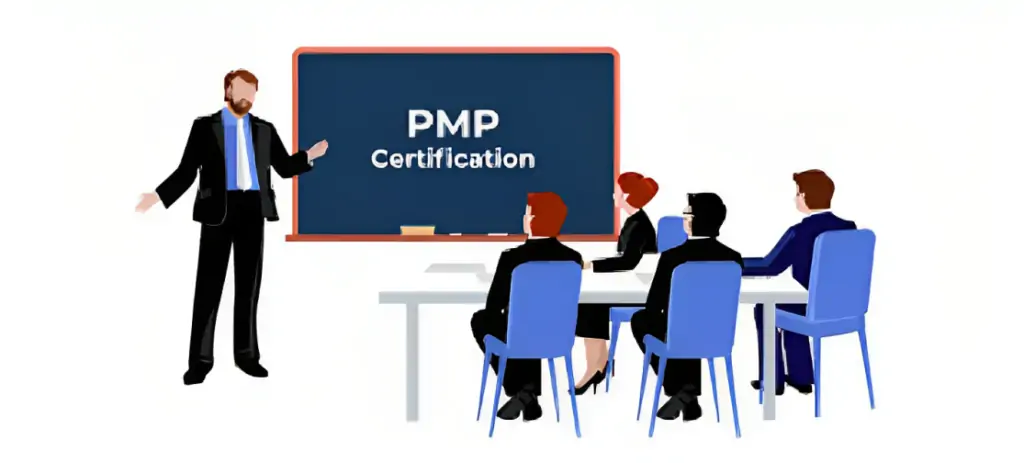
The PMP Certification Exam: What to Expect:
The Project Management Professional (PMP) certification exam is the culmination of your hard work and preparation. Understanding what to expect on exam day can help ease your nerves and ensure a smooth testing experience. In this section, we’ll provide insights into the PMP certification exam, its format, content outline, and the logistics involved.
Exam Format and Structure:
The PMP certification exam is a computer-based test (CBT) administered by the Project Management Institute (PMI). It shifted from the previous five-domain structure to three domains: People, Process, and Business Environment.
Here’s what you can expect regarding the exam’s format and structure:
180 Questions: The PMP exam consists of a total of 180 multiple-choice questions. Out of these, 175 are scored questions, while 5 are pre-test, ungraded questions. These pre-test questions are used for statistical analysis and are not counted toward your final score.
Time Limit: You will have 230 minutes (3 hours and 50 minutes) to complete the exam. This may seem like a lot of time, but with complex questions and the need for careful analysis, time management is crucial.
Domain Allocation: The exam questions are distributed across the three domains as follows:
- People: 42% of questions
- Process: 50% of questions
- Business Environment: 8% of questions
Exam Content Outline:
To succeed in the PMP exam, you should be well-versed in the content outline provided by PMI. The exam is designed to test your knowledge in various areas of project management, and it aligns with PMI‘s “A Guide to the Project Management Body of Knowledge (PMBOK® Guide).”
Here’s a brief overview of what the exam content covers within each domain:
People (42%):
- Communication and interpersonal skills
- Teamwork
- Leadership and stakeholder management
Process (50%):
- Initiating projects
- Planning projects
- Executing projects
- Monitoring and controlling projects
- Closing projects
Business Environment (8%):
- Business environment changes and impacts on projects
- Compliance and regulatory issues
- Organizational governance
It’s essential to thoroughly understand and be able to apply the concepts, processes, and best practices outlined in these domains.
Exam-Day Logistics:
On the day of the exam, there are several logistical details to keep in mind:
Test Center: You will take the exam at a designated Prometric test center. Be sure to arrive early to allow time for check-in procedures.
Identification: Bring valid, government-issued identification that matches the name on your PMI profile. This is required for admission to the exam.
Breaks: You are allowed to take breaks during the exam. However, the clock continues to run, so use your break time wisely.
Results: After completing the exam, you will receive a preliminary pass/fail result on the computer screen. A more detailed report will be provided by PMI later.
In conclusion, the PMP certification exam is a rigorous test of your project management knowledge and skills. Understanding its format, content, and exam-day logistics will help you approach it with confidence and increase your chances of success. Prepare thoroughly, manage your time wisely, and stay focused to earn your well-deserved PMP certification.
Tips for Acing the PMP Certification Exam:
Acing the Project Management Professional (PMP) certification exam is a significant achievement and requires dedicated preparation and a strategic approach. Here are some valuable tips to help you succeed:
- Understand the PMBOK® Guide: The PMP exam is based on the Project Management Body of Knowledge (PMBOK® Guide) published by the Project Management Institute (PMI). Ensure you have a deep understanding of the PMBOK® Guide’s concepts, processes, and terminology. This forms the foundation of the exam.
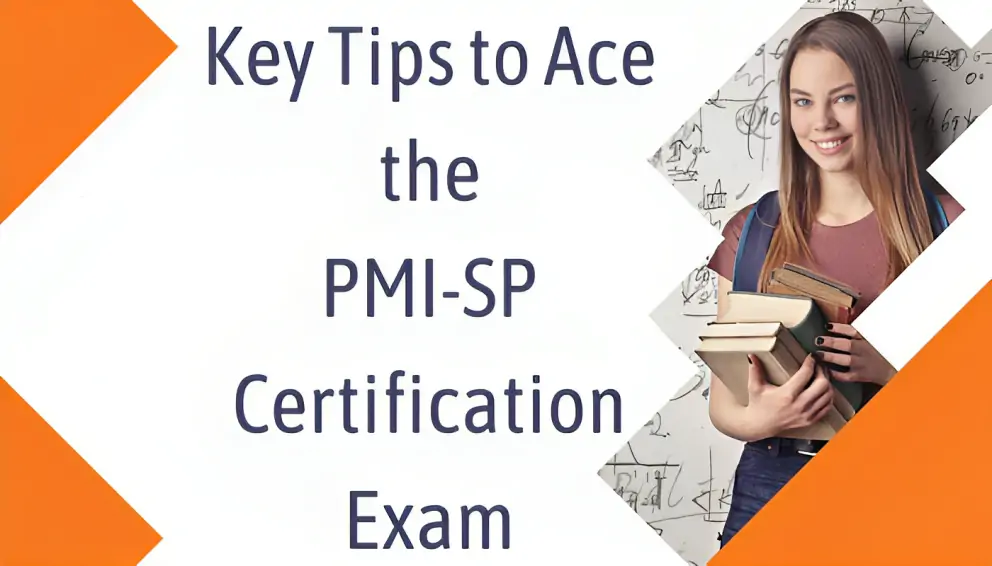
- Create a Study Plan: Develop a comprehensive study plan that outlines your study schedule, milestones, and goals. Allocate sufficient time to cover all the domains and topics. Consistency is key.
- Use Multiple Resources: Rely on various study materials such as textbooks, online courses, practice exams, and flashcards. Diverse resources provide different perspectives and help reinforce your understanding.
- Practice, Practice, Practice: Take as many practice exams and mock tests as possible. This will help you become familiar with the exam format, improve your time management, and identify areas that need further review.
- Join a Study Group: Collaborating with peers in a study group can be highly beneficial. Discussing complex topics and problem-solving together can enhance your comprehension and retention of key concepts.
- Focus on Weak Areas: Identify your weaknesses through practice exams and concentrate on improving those areas. This targeted approach can significantly boost your overall performance.
- Master Exam-Taking Strategies: Learn effective strategies for tackling multiple-choice questions. Techniques like process of elimination, answering easier questions first, and managing your time wisely are essential.
- Time Management: On the exam day, pace yourself. Don’t spend too much time on a single question. If you’re unsure about an answer, mark it for review and move on. You can revisit it later.
Other Tips:
- Stay Calm and Confident: Anxiety can hinder your performance. Practice relaxation techniques, get a good night’s sleep before the exam, and stay confident in your preparation.
- Read Questions Carefully: Pay close attention to the wording of questions. Some questions may have multiple correct answers, but you must select the best one based on the context.
- Know the PMI Code of Ethics and Professional Conduct: Familiarize yourself with PMI‘s code of ethics, as it might be referenced in exam questions. Understand the ethical responsibilities of a project manager.
- Review Your Work: If time allows, go back and review your answers. It’s not uncommon to catch mistakes or reconsider your choices upon a second look.
- Simulate Exam Conditions: Take practice exams under conditions that simulate the real exam day. This includes timing yourself and eliminating distractions.
- Stay Updated: Keep up with any changes in the PMP exam content and format. PMI periodically updates the exam to reflect industry trends and best practices.
Remember that passing the PMP exam requires both knowledge and strategy. By following these tips and dedicating yourself to thorough preparation, you’ll increase your chances of acing the PMP certification exam and earning the coveted Project Management Professional credential. Good luck!
Why PMP Certification Matters:
Career Advancement
Achieving PMP certification can open doors to new career opportunities. Many organizations prefer or require their project managers to hold this certification, as it signifies a high level of proficiency in project management.
Enhanced Skillset
PMP certification isn’t just about passing an exam. It involves a deep understanding of project management principles, tools, and techniques, which can significantly enhance your skills and capabilities.
Global Recognition
PMP certification is recognized and respected worldwide, making it a valuable asset if you’re considering working internationally.
PMP Certification Requirements:
Educational Background
To qualify for the PMP exam, you must have a secondary degree (high school diploma, associate’s degree, or global equivalent) and at least 5 years of project management experience, with 7,500 hours leading and directing projects. Alternatively, you can have a four-year degree, 3 years of project management experience, and 4,500 hours leading and directing projects.
Project Management Education
In addition to the experience requirements, you must complete 35 hours of project management education, often achieved through PMP certification training courses.
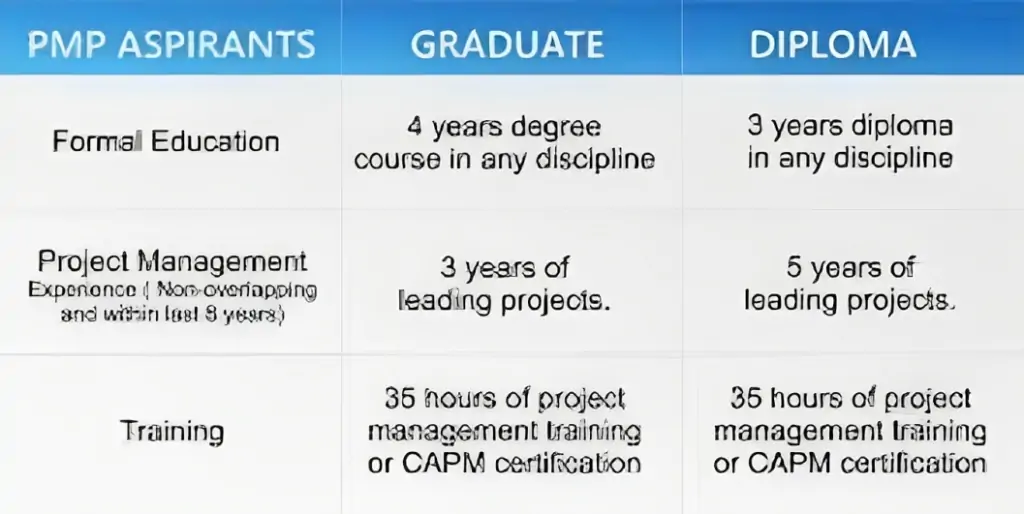
PMP Certification Training: Why BlueMorpho Learning
Now that you’ve gained insight into the significance of PMP certification and the certification process itself, let’s explore why BlueMorpho Learning stands out as the premier choice for your PMP certification training.
1. Comprehensive Curriculum: Our PMP training aligns with the latest PMBOK Guide, covering all knowledge areas and process groups for PMP exam success. Gain a solid understanding of the project management lifecycle.
2. Expert Instructors: At BlueMorpho Learning, we believe that the quality of instruction makes all the difference in your learning journey. That’s why we’ve assembled a team of experienced PMP-certified instructors who bring real-world expertise to the classroom. Our instructors guide you through complex concepts, share practical insights, and provide mentorship to ensure your success.
3. Interactive Learning: We understand that effective learning goes beyond passive reading or watching videos. Our training is highly interactive, incorporating a variety of engaging methods such as live webinars, group discussions, case studies, and hands-on exercises. These activities not only deepen your understanding but also make learning enjoyable and memorable.
4. Flexibility: We recognize that professionals pursuing PMP certification often have busy schedules. That’s why we offer flexible training options. You can choose from self-paced online courses, instructor-led virtual classes, or a blended approach that combines both.
5. Practice Exams: To excel on the PMP exam, practice is key. BlueMorpho Learning provides a range of practice exams and mock tests that closely simulate the actual exam environment. These practice exams not only help you gauge your readiness but also boost your confidence by familiarizing you with the types of questions you’ll encounter on the PMP exam.
More Reasons:
6. Personalized Support: We understand that each learner is unique, and everyone may have different strengths and areas that require more attention. That’s why we offer personalized support throughout your PMP certification journey. Whether you need one-on-one coaching, additional study resources, or clarification on specific topics, our team is here to assist you.
7. Success-Oriented Approach: Our goal is to see you succeed. We have a proven track record of helping countless individuals achieve their PMP certification. Our success-oriented approach focuses on not just passing the exam but also preparing you for the real-world challenges of project management.
8. Access to Resources: As a BlueMorpho Learning student, you’ll have access to a wealth of resources, including study guides, reference materials, and a supportive online community. You’ll never feel alone on your PMP journey, as our network of fellow learners and instructors is here to assist you.
9. Continuous Improvement: The world of project management is dynamic, and we understand the importance of staying updated with the latest industry trends and best practices. Our training materials and content are continuously reviewed and updated to ensure they align with the most current project management standards.
10. Exam Prep and Beyond: Our commitment to your success doesn’t end with passing the PMP exam. We prepare you for what comes after—applying your knowledge in your workplace effectively. BlueMorpho Learning equips you with practical skills that you can immediately apply to your projects, making you a more valuable asset to your organization.
Preparing for the PMP Exam:
Study Materials:
There are various study materials available, including textbooks, online courses, and practice exams. Utilize these resources to build a strong foundation in project management principles.
PMP Exam Format:
The PMP exam is a computer-based test consisting of 180 multiple-choice questions. Familiarize yourself with the exam format and practice time management.
Study Plan:
Create a study plan that outlines your study schedule, practice exams, and review sessions. Consistency is key to success in the PMP exam.

Taking the PMP Exam:
Exam Day Essentials
On the day of the exam, make sure you have all the necessary identification and documents. Arrive early to the test center to minimize stress.
Managing Exam Anxiety
Feeling nervous is normal, but managing anxiety is crucial. Practice relaxation techniques and focus on your preparation.
During the Exam
Read each question carefully, and don’t rush. Flag questions you’re unsure about and return to them later. Manage your time wisely.Post-Exam Steps:
Exam Results
After the exam, you’ll receive your results immediately. If you pass, congratulations! If not, use the feedback provided to prepare for a retake.
Continuing Education
Maintaining your PMP certification requires earning Professional Development Units (PDUs) through ongoing education and project management-related activities.Benefits of PMP Certification:Increased Earning Potential:
PMP-certified professionals often earn higher salaries than their non-certified counterparts. The certification can be a wise investment in your financial future.
Career Opportunities
PMP certification can open doors to leadership positions and exciting career opportunities in project management.
Improved Project Success:
Your enhanced project management skills can lead to more successful projects, boosting your reputation in the industry.
PMP Certification Training:
Online Training Courses
Online PMP certification training courses offer flexibility and accessibility. Look for reputable training providers like BlueMorpho Learning.
Classroom Training
Some individuals prefer traditional classroom training. Explore options in your area if this suits your learning style.
Self-Study
Self-study is an option for highly motivated learners. Utilize textbooks, study guides, and practice exams to prepare.
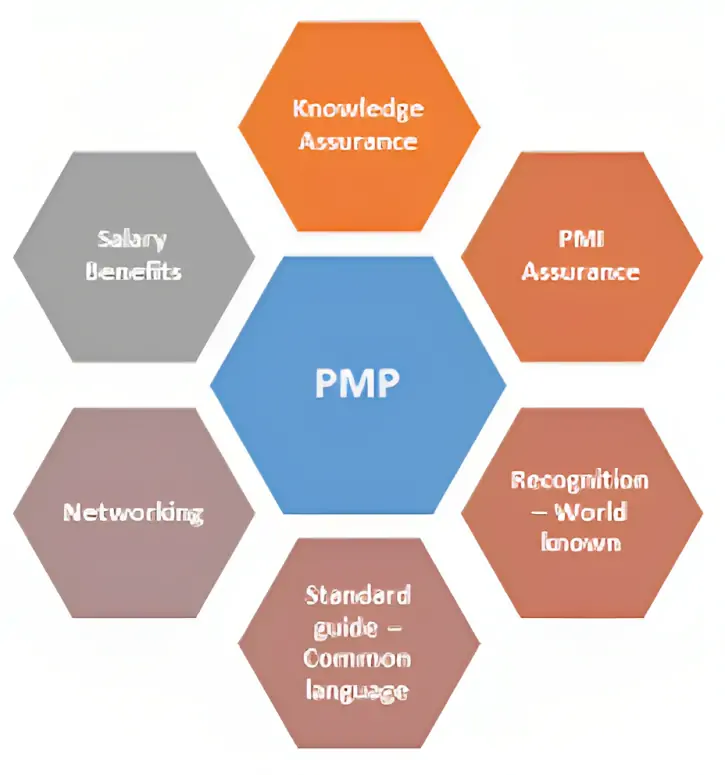
PMI-PMP Certification Success Stories:
PMP certification is a significant achievement that can open doors to new opportunities and career growth. Let’s dive into some inspiring PMP certification success stories to understand how this credential has positively impacted the lives of professionals.
1. Sarah’s Career Transformation:
Sarah, a seasoned project manager, decided to pursue her PMP certification to advance her career. After successfully passing the exam, she noticed a remarkable shift. She was not only offered a promotion but also received multiple job offers from top companies in her industry. The PMP credential not only boosted her confidence but also made her a sought-after project management expert.
2. John’s Entrepreneurial Journey:
John had a dream of starting his own project management consultancy. However, he lacked the credibility to attract clients. He decided to earn his PMP certification to gain industry recognition. With the PMP credential on his resume, he not only attracted clients but also expanded his business globally. Today, he runs a thriving consultancy with a team of skilled project managers.
3. Maria’s Global Endeavors:
Maria always had a passion for working on international projects. To pursue her dream of working on a global scale, she knew she needed a certification that was recognized worldwide. After obtaining her PMP certification, Maria was able to secure a position in a multinational corporation and work on projects in various countries. The PMP certification made her a truly global project manager.
4. David’s Salary Leap:
David had been working as a project manager for several years but felt that his salary didn’t reflect his expertise. After obtaining his PMP certification, he negotiated a substantial salary increase with his current employer. The certification not only validated his skills but also gave him the leverage to demand better compensation.
5. Susan’s Non-Profit Impact:
Susan was passionate about using her project management skills to make a difference in her community. She earned her PMP certification and joined a non-profit organization focused on community development. With her enhanced project management knowledge, she played a pivotal role in spearheading projects that improved the lives of many. The PMP credential allowed her to make a positive impact on a larger scale.
6. Michael’s Mid-Career Pivot:
Michael had spent the better part of his career in marketing but found himself increasingly drawn to project management. He decided to make a mid-career pivot and obtained his PMP certification. With his newly acquired skills, he successfully transitioned into a project management role and found fulfillment in a career that aligned with his passions.
These PMP certification success stories highlight the diverse ways in which this credential can transform careers and lives. Whether it’s achieving a promotion, starting a business, working on global projects, or making a positive impact in the community, the PMP certification is a valuable asset that empowers professionals to reach their goals and aspirations. It serves as a testament to the commitment, dedication, and expertise of those who hold it, and it continues to be a symbol of excellence in the field of project management.
Conclusion:
Obtaining your PMP certification can be a game-changer for your career in project management. It demonstrates your commitment to excellence and opens doors to exciting opportunities. With the right preparation and training, you can join the ranks of certified project management professionals who are making a significant impact in their organizations.
Remember that success in the PMP exam and certification process requires dedication and effort. Consider enrolling in a reputable online PMP certification training program like the ones offered by BlueMorpho Learning. With the right guidance and resources, you’ll be well on your way to achieving your PMP certification and advancing your career in project management.

